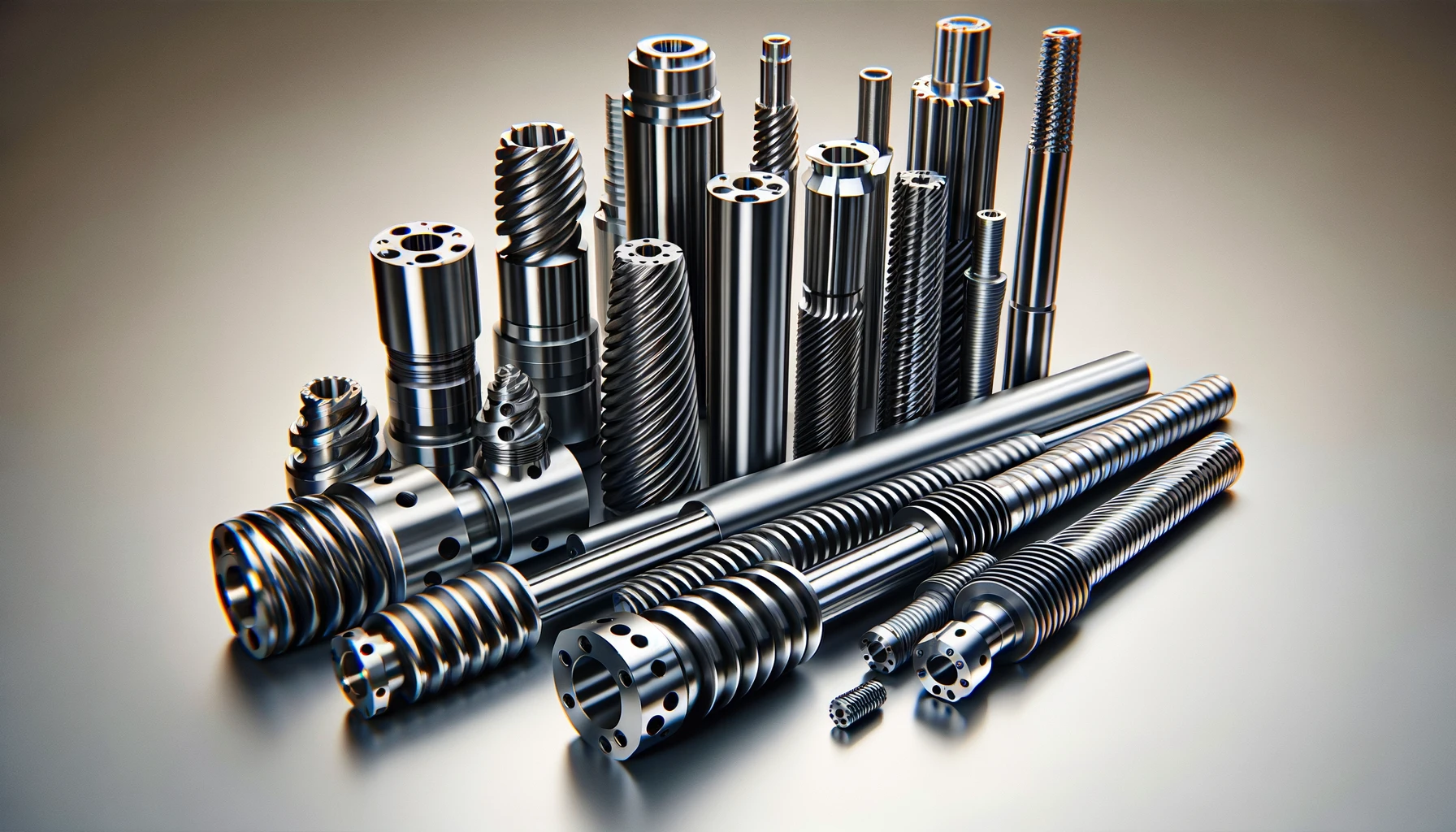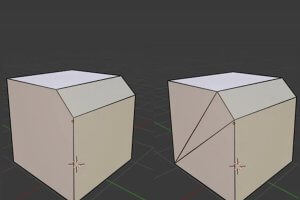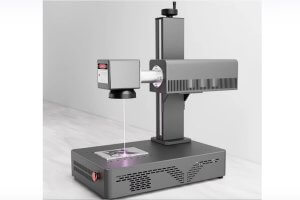The Technical Challenges in Precision CNC Machining of Steel Shafts
Precision CNC machining of steel shafts involves several technical challenges that need to be understood to evaluate a company’s capabilities accurately. These challenges include maintaining tight tolerances, ensuring surface finish quality, managing material hardness, and controlling thermal effects during machining. Each of these aspects requires advanced technology and expertise, making it crucial for buyers to comprehend these factors when selecting a machining partner.
- Tight Tolerances and Accuracy
Maintaining tight tolerances is one of the primary technical challenges in precision CNC machining. Tolerances as tight as ±0.001mm are often required, which necessitates highly accurate machines and skilled operators. The ability of a company to consistently produce parts within these tolerances indicates their technical prowess and reliability. Case Study: High-Precision Aerospace Shafts
A leading aerospace manufacturer needed steel shafts with tolerances within ±0.0005mm. They partnered with a CNC machining company that utilized high-precision Swiss-type lathes and multi-axis CNC machines. The company implemented rigorous quality control measures, including in-process inspections and coordinate measuring machines (CMM), to ensure every part met the stringent requirements. This partnership highlights the importance of advanced machinery and meticulous quality control in achieving tight tolerances. - Surface Finish Quality
Achieving the desired surface finish is crucial for the functionality and longevity of steel shafts. Surface roughness parameters, such as Ra (average roughness), are used to quantify the finish quality. Advanced CNC machines equipped with fine cutting tools and optimized machining strategies are necessary to achieve superior surface finishes. Case Study: Automotive Industry
An automotive company required steel shafts with a surface finish of Ra 0.2µm for their high-performance engines. They selected a CNC machining company that used diamond-coated tools and implemented a multi-stage finishing process, including grinding and polishing. The result was a flawless surface that significantly reduced friction and wear, demonstrating the importance of surface finish in high-performance applications. - Material Hardness Management
Steel shafts often require heat treatment processes to achieve desired hardness levels, which can affect machinability. Managing material hardness during machining is a critical technical challenge. CNC companies must have the capability to handle hardened steel and employ appropriate cutting tools and techniques to ensure efficient material removal and prolonged tool life.
Table: Machinability of Different Steel Hardness Levels
| Steel Type | Hardness (HRC) | Cutting Speed (m/min) | Tool Life (min) | Surface Finish (Ra µm) |
|---|---|---|---|---|
| Mild Steel | 20 | 200 | 60 | 0.8 |
| Medium Carbon Steel | 30 | 150 | 50 | 0.6 |
| High Carbon Steel | 45 | 100 | 40 | 0.5 |
| Tool Steel | 60 | 80 | 30 | 0.4 |
| Stainless Steel | 55 | 90 | 35 | 0.5 |
| Alloy Steel | 50 | 120 | 45 | 0.6 |
| Bearing Steel | 65 | 70 | 25 | 0.3 |
| Maraging Steel | 58 | 110 | 38 | 0.4 |
- Thermal Effects Control
During CNC machining, the heat generated can lead to thermal expansion and affect dimensional accuracy. Controlling these thermal effects is essential, particularly for precision parts like steel shafts. CNC companies need to employ coolant systems, heat-resistant materials, and advanced simulation software to predict and mitigate thermal effects.
What Methods Are Used to Ensure High Precision in CNC Machining of Steel Shafts?
Ensuring high precision in CNC machining of steel shafts involves a combination of advanced technology, meticulous process control, and skilled personnel. The methods employed to achieve this precision are multifaceted and require a deep understanding of machining dynamics.
- Advanced CNC Machinery
Utilizing state-of-the-art CNC machines with multi-axis capabilities is crucial for achieving high precision. These machines offer better control over cutting parameters and allow for complex geometries to be machined accurately. Companies that invest in the latest CNC technology demonstrate a commitment to maintaining high standards of precision. - Quality Control and Inspection
Implementing rigorous quality control measures is essential for maintaining precision. This includes in-process inspections using high-accuracy measuring instruments, such as laser scanners and CMMs. Consistent quality checks ensure that any deviations are detected and corrected promptly. - Skilled Workforce
The expertise of the operators and engineers plays a significant role in achieving precision. Skilled personnel can optimize machining parameters, troubleshoot issues, and make necessary adjustments to ensure that the final product meets the required specifications.
How Do CNC Machining Companies Handle Large Volume Production of Steel Shafts?
Handling large volume production of steel shafts while maintaining precision and quality is a significant challenge. CNC machining companies employ several strategies to address this challenge effectively.
- Automated Production Lines
Automation is key to achieving consistency and efficiency in large volume production. CNC companies utilize automated production lines with robotic loaders and unloaders, reducing human error and increasing throughput. - Lean Manufacturing Practices
Implementing lean manufacturing practices helps in minimizing waste and optimizing production processes. Techniques such as just-in-time (JIT) production, continuous improvement (Kaizen), and value stream mapping are commonly used to enhance efficiency. - Scalable Production Capabilities
Companies with scalable production capabilities can adjust their operations based on demand. This flexibility is crucial for handling large orders without compromising on quality or delivery timelines.
What Are the Key Factors to Consider When Choosing a CNC Machining Company for Steel Shafts?
Choosing the right CNC machining company involves evaluating several key factors to ensure they can meet your specific requirements for steel shafts.
- Technical Expertise
Assessing the technical expertise of the company is paramount. This includes their experience in machining steel shafts, the technology they use, and their ability to handle complex projects. - Quality Assurance
A strong quality assurance process ensures that the parts produced meet the required standards. Look for companies that have certifications such as ISO 9001, which indicate a commitment to quality. - Customer Support and Communication
Effective communication and customer support are essential for a successful partnership. The company should be responsive, provide clear updates, and be willing to collaborate to address any issues that arise. - Cost and Lead Time
While cost is an important factor, it should not be the sole criterion. Consider the overall value, including the quality of the parts, lead times, and the company’s reliability in meeting deadlines.
Case Study: Efficient Large Volume Production in Automotive Industry
An automotive manufacturer required large volumes of steel shafts for their assembly lines. They partnered with a CNC machining company that utilized automated production lines and lean manufacturing practices. The CNC company implemented JIT production, significantly reducing inventory costs and ensuring timely delivery. Their scalable production capabilities allowed them to adjust to varying order sizes without compromising quality. This case highlights the importance of automation and lean practices in large volume production.
By understanding these technical challenges and evaluating CNC machining companies based on their ability to address them, buyers can make informed decisions and choose the right partner for their steel shaft production needs.
Other Articles You Might Enjoy
- Precision CNC Machining of Stainless Steel: Innovations and Best Practices in Aerospace Machining
Introduction: Precision CNC Machining and the Use of Stainless Steel Precision Computer Numerical Control (CNC) machining, a vital technology within the manufacturing industry, uses pre-programmed software to guide machinery towards…
- How Does CNC Machining Achieve Precision Tolerances in Stainless Steel Parts?
The Importance of Precision Tolerances in Stainless Steel Parts Precision tolerances are the allowable limits of variation in a physical dimension. In CNC machining, particularly for stainless steel parts, achieving…
- Precision Aluminum CNC Machining: Cost-Effective Solutions for High-Volume Production?
Precision Aluminum CNC Machining: An Overview In the realm of manufacturing, precision aluminum CNC machining stands out as a key technique sought after for high-volume production runs. The term 'CNC'…
- Elevating Precision Standards through Chamfer in CNC Machining
1. Introduction: The Pursuit of Unparalleled Precision In the realm of CNC machining, precision is paramount. This section introduces the article by exploring the significance of precision in manufacturing and…
- Precision Prowess: Unveiling the Advantages of China CNC Machining
1. Introduction: The Role of Precision in Manufacturing Excellence In this introductory section, we delve into the critical role that precision plays in manufacturing and set the stage for an…
- Revolutionizing CNC Machining for Complex Aerospace Assemblies
Introduction to CNC Machining in Aerospace Assemblies Computer Numerical Control (CNC) machining represents a significant technological development playing a notable role in the creation of complex aerospace assemblies. CNC machining…









